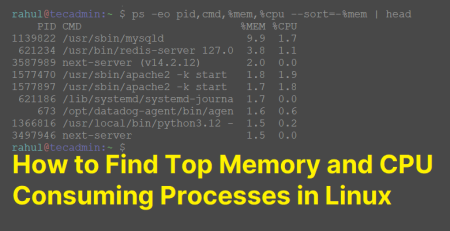JQ is a powerful and flexible command-line JSON processor for Linux, designed to parse, filter, and transform JSON data. Its lightweight nature and speed make it an essential tool for developers working with JSON files. In this article, we will explore how to use the JQ command-line tool to pretty print JSON files in Linux, improving readability and enhancing the debugging process.
1. Installing JQ on Your System
Before you can use JQ to pretty print JSON files, you need to install it on your Linux distribution. The installation process varies depending on the package manager used by your distribution. Here are some examples:
- For Debian-based systems (e.g., Ubuntu), use the apt package manager:
sudo apt updatesudo apt install jq - For RHEL-based systems (e.g., CentOS, Fedora), use the yum package manager:
sudo yum install jq - For Arch Linux, use the pacman package manager:
sudo pacman -S jq
2. Pretty Printing JSON Files with JQ
Once JQ is installed on your system, you can use it to pretty print JSON files by following these steps:
- Open a terminal and navigate to the directory containing the JSON file you want to pretty print.
- Execute the following command, replacing input.json with the name of your JSON file:
jq '.' input.json - JQ will pretty print the JSON file to the terminal. If you want to save the output to a new file, use the following command:
jq '.' input.json > output.json
3. Filtering and Transforming JSON Data with JQ
In addition to pretty printing JSON files, JQ offers a wide range of options for filtering and transforming JSON data. Here are some examples:
- Extract a specific value from a JSON object:
jq '.key' input.json - Filter an array of objects based on a specific condition:
jq '.[] | select(.age > 30)' input.json - Map and transform an array of objects:
jq '.[] | {name: .name, age: .age}' input.json - Chain multiple filters and transformations together:
jq '.[] | select(.age > 30) | {name: .name, age: .age}' input.json
4. Integrating JQ into Shell Scripts
JQ can be easily integrated into shell scripts to automate JSON processing tasks. Here’s an example of a simple shell script that pretty prints a JSON file and filters data based on user input:
1 2 3 4 5 6 7 8 9 10 11 | #!/bin/bash if [ -z "$1" ]; then echo "Usage: $0 <input_json_file>" exit 1 fi echo "Enter the minimum age:" read min_age jq ".[] | select(.age >= $min_age)" "$1" |
Conclusion
JQ is an invaluable tool for developers who frequently work with JSON data. Its ability to pretty print JSON files, along with its extensive filtering and transformation capabilities, make it a must-have utility in any Linux developer’s toolkit. By mastering the JQ command-line tool, you can streamline your JSON processing tasks and improve the overall efficiency of your development workflow.

